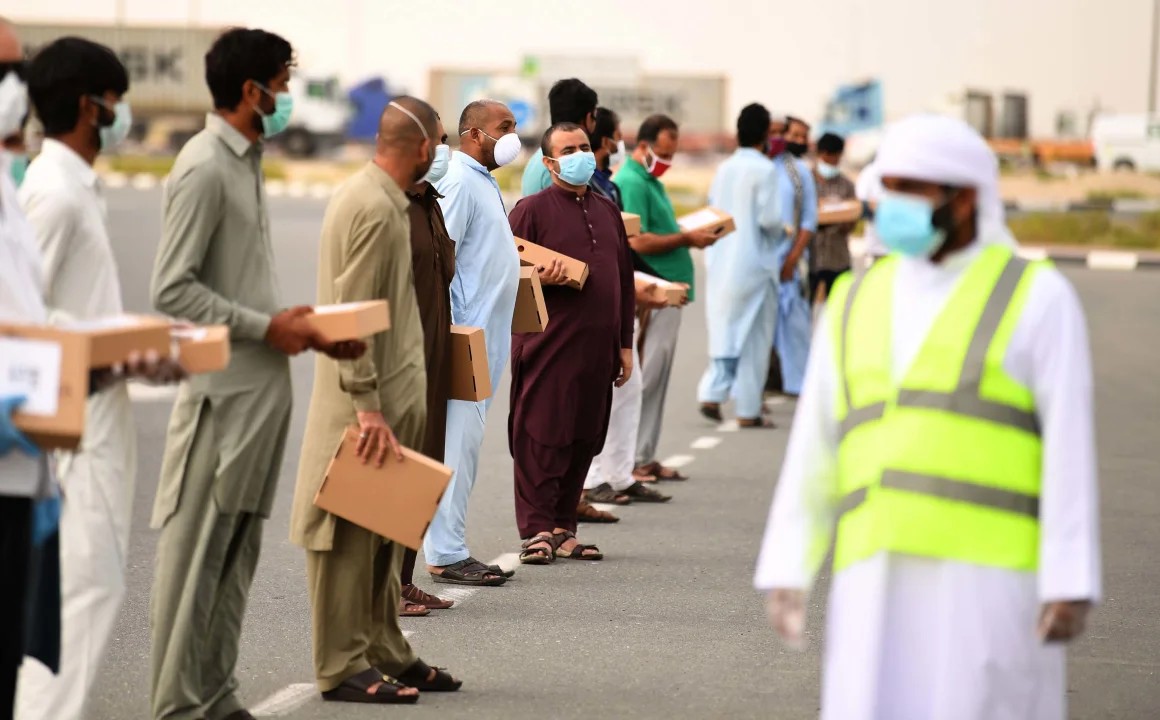This year, authorities in Kuwait have launched a massive campaign to crackdown on foreign nationals who have violated the new residency law, Amiri Decree No. 114. As of now, 440 foreign nationals have been arrested for violating the law. The new law replaces the previous Law No. 17 which was the standard for over 60 years.
The new law introduces several concerning provisions. One such example is Article 20. Unlike the previous law, Law No. 17, the new law allows for the Ministry of Interior to deport migrants, who lack income or violate Article 19, without oversight from the courts. Included within this power is the ability for the Ministry of Interior to deport individuals for vague reasoning such as public interest, security, or morals.
The increased powers of the Ministry of Interior and the lack of judicial oversight should be concerning to anyone familiar with the Ministry of Interior. The Ministry has been know to arrest demonstrators, torture detainees, and have previously deported non-nationals for offenses as minor as operating a taxi without a license. Its newfound powers under Amiri Decree No. 114 may only embolden the agency to violate human rights more frequently and without consequence.
The new law only furthers the kafalah sponsorship within the country. The new law does not provide any protections for migrant workers that face abuse at the hands of their sponsor. The system is rife for abuse as noted by the Human Rights Council in their most recent Universal Periodic Review of Kuwait. Among other things, the report highlights the vulnerability of workers due to a lack of protections for migrant workers and the possibility of deportation of said workers. The Human Rights Council goes so far as to call for the abolishment of the entire kafalah system.
The Human Rights Council is right to be concerned. The new law heavily favors the sponsors in the kafalah system by affording them increased powers over migrant workers. The aforementioned Article 19 of the new law prohibits migrants from working for any entity without permission from their sponsor. This coupled with Article 20 allows for the Ministry of Interior to deport migrants at the behest of their sponsors for alleged violations. Migrant workers are truly at the mercy of their sponsors with little reprieve nor rights under labor laws to prevent them from being arbitrarily deported.
The mass arrests are a symptom of a larger issue of migrant workers’ rights within the country. Kuwait needs to take further steps to ensure that migrant workers do not face abuses at the hand of their sponsors. The Kuwaiti courts need the ability to oversee the deportations of migrant workers by the Ministry of Interior. The language of Amiri Decree No. 114 needs to be revised, especially Article 20, to avoid using vague reasoning; such as claiming, “[a deportation] is necessary for the public interest, security, or morals.” As Kuwait becomes ever more reliant on migrant labor to fuel its economy, further protections for migrant workers must be enacted.





